
West Virginia’s natural beauty and a strong economy make it a compelling choice for expanding your investment portfolio. The state’s stunning landscapes, from the rolling Appalachian Mountains to picturesque rivers and forests, offer a unique blend of outdoor recreational opportunities and a tranquil lifestyle that attracts both residents and visitors. This natural beauty, combined with the state’s economic diversification efforts, fosters a favorable environment for real estate investment. West Virginia’s resilient economy, with key sectors like energy production, manufacturing, healthcare, and education, provides stability and opportunities for growth. The state’s commitment to fostering a diverse business environment creates potential for a range of real estate investments, from residential properties to commercial ventures, making it a smart choice for those looking to expand their portfolio while enjoying the serenity of its natural surroundings.
New to passive real estate investing?
Explore Ark7 OpportunitiesWest Virginia’s Economy: An Overview
Nestled in the heart of Appalachia, West Virginia boasts a rich history and a unique economic landscape. While the state has faced its share of challenges over the years, it also possesses a range of economic drivers that have shaped its development. Here are some of the primary pillars of the economy in West Virginia.
- Energy Production: One of the most significant economic drivers in West Virginia has historically been its energy production. Coal mining, in particular, has long been a cornerstone of the state’s economy. West Virginia’s rich coal reserves have fueled power generation and manufacturing industries across the nation. However, the coal industry has faced a series of challenges, including declining demand and environmental concerns. As a result, the state has sought to diversify its energy sector by embracing renewable energy sources like wind and natural gas.
- Natural Resources: Beyond coal, West Virginia is blessed with an abundance of natural resources. The state’s lush forests, fertile soil, and mineral deposits have played a pivotal role in its economy. The timber industry, for instance, has thrived due to the state’s extensive hardwood forests. West Virginia’s agricultural sector also contributes significantly to the economy, with a focus on crops like corn, soybeans, and apples.
- Manufacturing: Manufacturing has been a consistent driver of West Virginia’s economy. The state’s strategic location in the Eastern United States, coupled with its transportation infrastructure, makes it an ideal location for manufacturing operations. Industries like chemicals, machinery, and aerospace manufacturing have all found a home in West Virginia. The state’s dedication to workforce development and business-friendly policies has attracted companies seeking a competitive advantage.
- Tourism: West Virginia’s stunning natural landscapes, including the Appalachian Mountains and the New River Gorge, have drawn visitors from near and far. The state’s outdoor recreational opportunities, from hiking and whitewater rafting to skiing and rock climbing, are a significant economic driver. Tourism-related businesses such as hotels, restaurants, and adventure outfitters have benefited from this influx of visitors.
- Healthcare and Education: The healthcare and education sectors play a vital role in West Virginia’s economy. The state is home to several major medical centers and universities, serving both its residents and drawing in students and patients from neighboring regions. These institutions provide employment opportunities and stimulate economic growth in various communities.
- Small Businesses: West Virginia’s economy is dotted with small businesses that contribute to its vibrancy. Local entrepreneurs operate restaurants, retail stores, tech startups, and a variety of other enterprises. These small businesses form the backbone of the state’s economy, fostering community development and economic resilience.
- Government and Public Services: Government employment is another crucial economic driver in West Virginia. The state is home to various federal, state, and local government agencies, providing stable employment opportunities. These jobs support the livelihoods of many West Virginians and contribute to the overall economic stability of the state.
- Infrastructure and Transportation: West Virginia’s infrastructure plays a pivotal role in its economic well-being. The state’s network of highways, railroads, and rivers facilitates the movement of goods and people. The state’s transportation system, along with its well-positioned logistics hubs, enhances West Virginia’s appeal to businesses looking to establish distribution centers or expand their operations.
West Virginia’s Housing Market and Projections for 2024
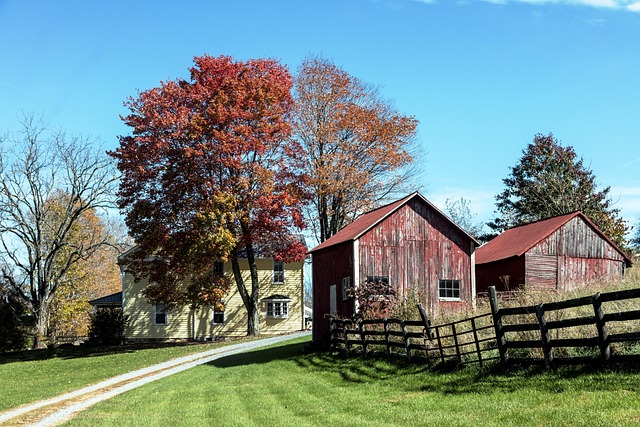
To understand the housing market in West Virginia, one must first assess the current state of affairs. Several key factors influence the housing market, including home prices, supply and demand dynamics, and the overall economic climate.
- Home Prices: West Virginia has traditionally been known for its affordable housing. However, in recent years, there has been a gradual increase in home prices. This can be attributed to various factors, including increased demand, low inventory, and rising construction costs. While home prices in West Virginia are still relatively affordable compared to many other states, they are showing signs of a slow but steady rise.
- Supply and Demand: The housing market is inherently driven by the interplay between supply and demand. West Virginia has experienced a shift toward increased demand, fueled in part by the state’s energy sector, which has attracted workers to the region. As a result, there is a growing need for housing, particularly in areas close to job centers. This has put pressure on the existing housing supply, leading to higher prices and increased competition among buyers.
- Economic Climate: West Virginia’s economy is diverse, with sectors like energy production, manufacturing, healthcare, education, and tourism playing significant roles. A stable economic climate contributes to housing market stability. As the state continues to diversify its economy, there is an expectation of improved economic conditions in the coming years, which should have a positive impact on the housing market.
Historical Trends in West Virginia’s Housing Market:
To make projections for 2024, it’s essential to consider historical trends. Over the past few decades, West Virginia’s housing market has experienced notable shifts, reflecting broader economic and demographic changes.
- Boom and Bust of the Coal Industry: Historically, the coal industry has significantly influenced West Virginia’s housing market. The boom-and-bust nature of coal mining has led to cycles of housing demand. During coal booms, housing demand surged, leading to construction and rising home prices. Conversely, during downturns, the housing market often softened. Recent efforts to diversify the state’s economy aim to reduce the housing market’s dependency on coal-related trends.
- Aging Population and Outmigration: West Virginia, like many other states, has grappled with an aging population and outmigration of young residents seeking job opportunities elsewhere. These demographic trends have had a notable impact on the housing market. An aging population has led to increased demand for retirement and senior living facilities, while outmigration has sometimes resulted in vacant properties and reduced housing demand in certain areas.
- Housing Rehabilitation and Preservation: Efforts to revitalize and preserve historic properties have contributed positively to the housing market. West Virginia’s unique historical architecture and cultural heritage have prompted initiatives to rehabilitate older homes and encourage homeowners to invest in property preservation. This has not only enhanced housing stock but also driven economic activity in related sectors.
Projections for West Virginia’s Housing Market in 2024:
Now, let’s delve into projections for West Virginia’s housing market in 2024. While the future is never entirely certain, informed projections can be made based on current trends and factors likely to influence the market.
- Steady Price Appreciation: It is expected that the trend of modest home price appreciation will continue in West Virginia. While the state remains affordable in comparison to many other parts of the country, rising construction costs and increased demand are likely to exert upward pressure on prices. Homebuyers should anticipate a competitive market, particularly in areas near economic hubs.
- Continued Focus on Diversification: West Virginia’s efforts to diversify its economy are likely to have a positive impact on the housing market. As new industries, such as renewable energy and manufacturing, take root, they will create jobs and stimulate housing demand. This diversification should provide stability to the market, reducing its historical reliance on the coal industry’s fluctuations.
- Affordability Remains a Strength: While home prices may rise, West Virginia is expected to maintain its reputation for affordability. This can be a significant draw for individuals and families seeking a cost-effective alternative to other states with higher living expenses. Affordable housing can also play a role in attracting businesses and professionals to the region.
- Addressing Aging Housing Stock: One challenge facing West Virginia’s housing market is the aging housing stock, which may require renovation and modernization. Efforts to address this issue are likely to continue, either through government incentives, private investments, or community-based initiatives. This can have a dual benefit of improving housing quality and creating job opportunities in construction and related industries.
- Influence of External Factors: It’s important to note that the housing market can be influenced by external factors, such as changes in federal housing policies, interest rates, and global economic conditions. Events beyond the state’s control can impact the trajectory of West Virginia’s housing market in 2024 and beyond.
Top 10 Best Real Estate Investment Markets in West Virginia
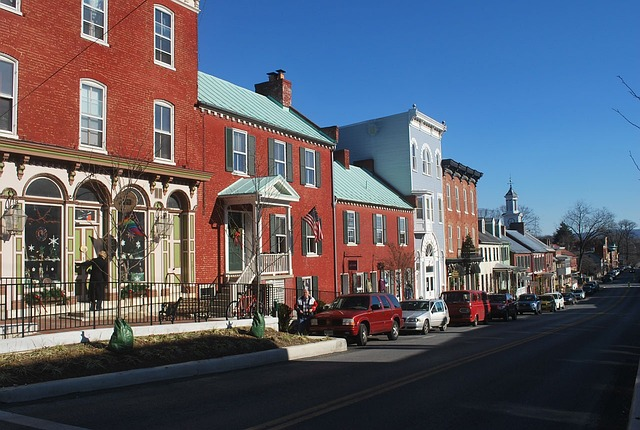
Investing in real estate can be a rewarding venture, and choosing the right location is crucial for a successful investment. West Virginia, with its diverse landscapes and unique communities, offers several promising real estate markets. Whether you’re a seasoned investor or a first-time buyer, these top 10 best real estate investment markets in West Virginia should be on your radar.
1. South Charleston, WV
South Charleston, located along the Kanawha River, offers a blend of urban amenities and natural beauty. It’s a hub for employment opportunities, boasting numerous businesses, and it’s home to the West Virginia Regional Technology Park, a major economic driver. The city’s growing job market makes it an attractive option for real estate investment.
2. Lost City, WV
For those seeking a more tranquil and rural investment, Lost City is a hidden gem. Nestled in the scenic Potomac Highlands region, Lost City is known for its natural beauty, making it a great destination for second homes or vacation rentals. The area’s serene landscapes and recreational opportunities draw visitors and potential buyers.
3. Huntington, WV
Huntington, located in the western part of the state, has a diverse economy that includes healthcare, education, and manufacturing. The city’s proximity to the Ohio River and its role as a transportation hub make it a strategic location for businesses. Investors can find opportunities in both residential and commercial real estate in this vibrant city.
4. Wheeling, WV
Wheeling, situated along the Ohio River, has a rich history and a growing tourism industry. The city’s historic charm and various cultural attractions make it a compelling destination for real estate investment. Additionally, Wheeling’s economic diversity and transportation connections make it an appealing market for investors.
5. Parkersburg, WV
Parkersburg, nestled by the Ohio River, is another promising real estate market. The city benefits from a strong healthcare sector and several colleges and universities. These institutions contribute to the local economy and create a demand for rental properties. Parkersburg’s affordability and strategic location make it an attractive option for investors.
6. Morgantown, WV
Home to West Virginia University, Morgantown has a strong economy fueled by education, healthcare, and research. The city’s steady influx of students and professionals creates a robust rental market. Morgantown’s real estate market offers diverse opportunities, from student housing to residential properties.
7. Weirton, WV
Weirton, located in the northern part of the state, has a growing industrial and manufacturing sector. The city’s location near the Pennsylvania border and the Ohio River contributes to its economic stability. Real estate investors can explore opportunities in both residential and commercial properties, as well as in response to the growing workforce.
8. Bridgeport, WV
Bridgeport, often recognized for its excellent school system and family-friendly environment, is an appealing real estate market for those interested in residential properties. Its proximity to Clarksburg and Morgantown, along with steady job growth, makes it an attractive location for real estate investment.
9. Hurricane, WV
Situated in the southwestern part of the state, Hurricane offers a peaceful suburban lifestyle with easy access to Charleston. The city’s strong sense of community and proximity to essential amenities make it an ideal location for residential real estate investment. The housing market here has shown resilience and potential for growth.
10. Martinsburg, WV
Martinsburg, located in the Eastern Panhandle, has become a popular choice for commuters to the Washington, D.C., metropolitan area. The city’s strategic location and lower cost of living attract residents and businesses alike. The real estate market in Martinsburg offers a range of opportunities, from residential properties to commercial investments.
Where are the Cheapest Real Estate Markets in West Virginia?
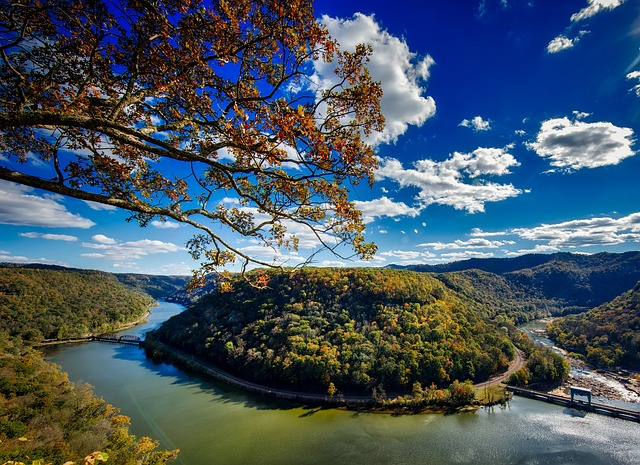
Parkersburg, WV
Located along the Ohio River in the northwestern part of the state, Parkersburg offers some of the most affordable real estate options in West Virginia. The city benefits from a stable job market, a strong healthcare sector, and several educational institutions. Affordable housing, a low cost of living, and a friendly community atmosphere make Parkersburg an attractive destination for budget-conscious homebuyers.
Clarksburg, WV
Clarksburg, situated in the north-central region of West Virginia, is another budget-friendly choice for real estate. The city’s economy is diverse, with manufacturing, healthcare, and education playing significant roles. Clarksburg’s low property prices and reasonable living costs provide opportunities for first-time homebuyers and investors seeking affordable housing.
St. Albans, WV
St. Albans, located in the southwestern part of the state, offers a mix of affordability and a pleasant community environment. The city’s access to Charleston, the state’s capital, adds to its appeal. St. Albans provides a range of housing options, from single-family homes to apartments, at competitive prices.
Fairmont, WV
Fairmont, positioned in the north-central region of West Virginia, boasts a thriving education sector, with Fairmont State University contributing to the local economy. The city offers a variety of housing options, many of which are affordable for individuals and families seeking to purchase their first home.
Beckley, WV
Beckley, nestled in the southern part of West Virginia, is known for its affordability. The city’s economy revolves around industries like healthcare, manufacturing, and education, which provide stability for residents. Beckley’s real estate market features a range of housing choices that can fit various budgets.
The Most Expensive Cities in West Virginia
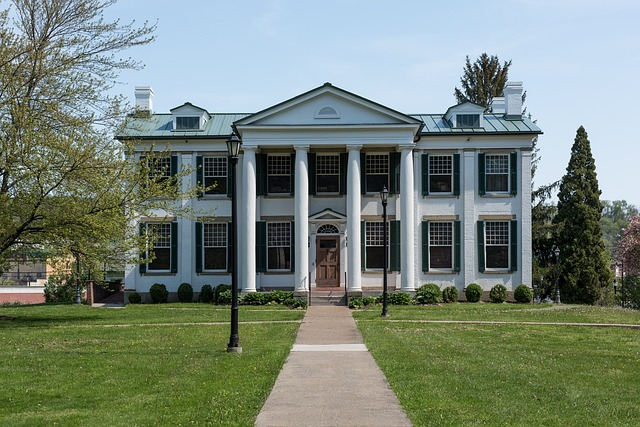
Charles Town, WV
Charles Town, located in the Eastern Panhandle, stands as one of West Virginia’s more expensive real estate markets. Its proximity to the Washington, D.C. metropolitan area has led to increased demand for homes, driving up property prices. The city’s historic charm, combined with a convenient commute to the nation’s capital, makes it a desirable but pricier option.
Shannondale, WV
Shannondale, situated near Charles Town in the Eastern Panhandle, is another upscale real estate market. The community’s scenic beauty and exclusivity contribute to higher property values. Shannondale is known for its luxurious homes, often accompanied by generous acreage and stunning views.
Martinsburg, WV
Martinsburg, the largest city in the Eastern Panhandle, is a sought-after location for those commuting to Washington, D.C., and other major cities in the region. The demand for housing, particularly for professionals seeking an escape from the crowded urban centers, has driven property prices higher.
Inwood, WV
Inwood, also in the Eastern Panhandle, is another city with a growing real estate market. The area’s suburban appeal, access to commuter routes, and expanding job opportunities have made it an attractive but relatively expensive choice for homebuyers.
Cheat Lake, WV
Cheat Lake, located near Morgantown in north-central West Virginia, is known for its stunning lakefront properties. Waterfront real estate often comes at a premium, and Cheat Lake is no exception. The picturesque surroundings and recreational opportunities make this area a desirable, albeit costly, real estate market.
West Virginia Median Household Income
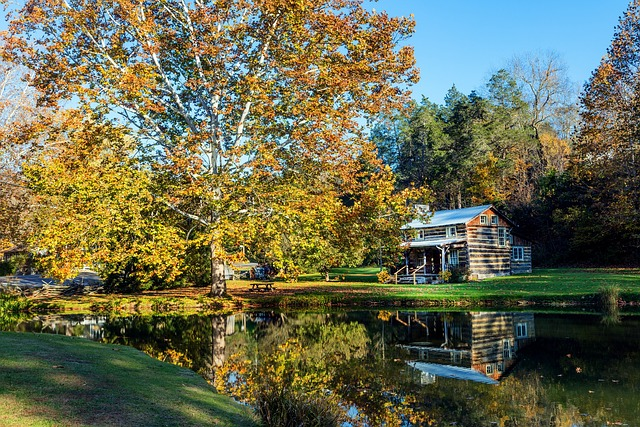
As of July of 2022, West Virginia’s median household income was around $51,000 (via U.S. Census Bureau). This is one reason why West Virginia offers affordable real estate investing options for those looking to expand their portfolio. With a relatively lower median household income compared to many other states, West Virginia offers investors the opportunity to enter the real estate market at a more affordable price point. This affordability factor can be particularly appealing for those looking to expand their real estate investment portfolio, providing a range of options that align with a broader strategy for wealth accumulation and financial growth.
Resources for Real Estate Investors Looking for Share-by-Share Investment Property
If you’re looking for an affordable place to invest in real estate along the east coast, West Virginia offers lower prices without sacrificing on natural beauty, economic opportunity, or location. While West Virginia is not ideal for every investor’s portfolio, for those who do their due diligence and read market trends right, it can be a lucrative, worthy place to invest your money.
Don’t want to put all your eggs in one basket? Consider fractional real estate investing and enjoy knowing you are not the only thing standing between your investment and any risk involved.
Other resources for east coast investing include:
- Best Places to Invest in New Jersey
- Best Places to Invest in Connecticut
- Best Places to Invest in Maryland
- Best Places to Invest in Virginia
- Best Places to Invest in Ohio
